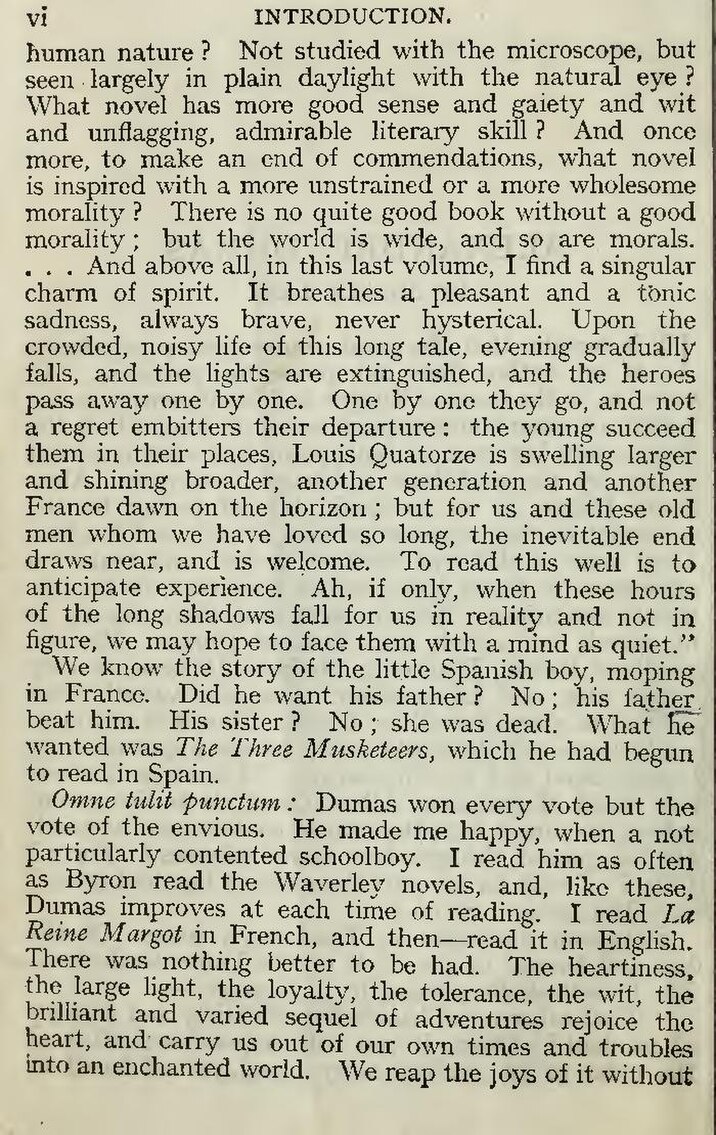human nature? Not studied with the microscope, but seen largely in plain daylight with the natural eye? What novel has more good sense and gaiety and wit and unflagging, admirable literary skill? And once more, to make an end of commendations, what novel is inspired with a more unstrained or a more wholesome morality? There is no quite good book without a good morality; but the world is wide, and so are morals. . . . And above all, in this last volume, I find a singular, charm of spirit. It breathes a pleasant and a tonic sadness, always brave, never hysterical. Upon the crowded, noisy life of this long tale, evening gradually falls, and the lights are extinguished, and the heroes pass away one by one. One by one they go, and not a regret embitters their departure: the young succeed them in their places, Louis Quatorze is swelling larger and shining broader, another generation and another France dawn on the horizon but for us and these old men whom we have loved so long, the inevitable end draws near, and is welcome. To read this well is to anticipate experience. Ah, if only, when these hours of the long shadows fall for us in reality and not in figure, we may hope to face them with a mind as quiet.
We know the story of the little Spanish boy, moping in France. Did he want his father? No; his father beat him. His sister? No; she was dead. What he wanted was The Three Musketeers, which he had begun to read in Spain.
Omne tulit punctum: Dumas won every vote but the vote of the envious. He made me happy, when a not particularly contented schoolboy. I read him as often as Byron read the Waverley novels, and, like these, Dumas improves at each time of reading. I read La Reine Margot in French, and then—read it in English. There was nothing better to be had. The heartiness, the large light, the loyalty, the tolerance, the wit, the brilliant and varied sequel of adventures rejoice the heart, and carry us out of our own times and troubles into an enchanted world. We reap the joys of it without
